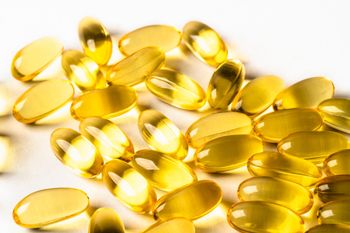
- Nutritional Outlook Vol. 17 No. 4
- Volume 17
- Issue 4
Stop Craving Sweets? Spinach Could Help
New human clinical results on a spinach-derived ingredient.
A spinach ingredient’s appetite-suppressing effect may be due to the release of glucagon-like peptide 1 (GLP-1), a hormone that plays a major role in appetite control, and may specifically target the desire for sweet foods. An abstract on the latest human clinical trial on the ingredient was presented at the winter meeting of the Society for the Study of Ingestive Behavior held in Switzerland earlier this month.
The gut produces two key appetite-modulating hormones-peptide tyrosine tyrosine (PYY) and GLP-1-postprandially, as explained by De Silva et al. in a 2012 paper published
It appears that Appethyl, a proprietary spinach-derived ingredient, is one of those ingredients, at least when it comes to modulating GLP-1.
This latest clinical study-not yet published-showed an increase in GLP-1 release in human subjects following a dose of Appethyl, says R&D firm Greenleaf Medical AB (Stockholm, Switzerland). The company licensed Appethyl from Lund University in Sweden to bring the ingredient to market.
The three-month study involved 36 overweight women, aged 40 to 65 years, who received a daily blueberry shot with or without 5 g of Appethyl at breakfast. Researchers measured the subjects’ blood glucose, insulin, and GLP-1 levels six hours after intake, on the first and last day of the study. Additionally, they used the Visual Analogue Scale to judge subjects’ urges for sweet, fat, and salty components.
Appethyl subjects had a significantly increased release of GLP-1, in addition to a diminished desire for sweets. (The GLP-1 effects happened by the last day of the study, whereas the lower sweets cravings kicked in on day one of the study.)
“The conclusion of the study was that the suppression of sweet taste may be coupled to the release of GLP-1 and that this release occurs through delaying food digestion, as the active components in Appethyl, known as thylakoids, temporarily inhibit pancreatic lipase for about two hours,” the company says. It adds that thylakoids may also slow digestion of carbohydrates.
Previous research showed that there is no difference in effect from a 3.7- and a 7.4-g dose of Appethyl. Both doses equally reduced hunger at four hours.
Greenleaf Medical launched its first Appethyl product in Sweden last year. It says Appethyl was the number one selling nutraceutical in the largest health food store chain in Sweden within weeks of its launch, selling $1.2 million worth of product in the first week alone.
Nutritional Outlook
Editor-in-Chief
Nutritional Outlook magazine
jennifer.grebow@ubm.com
Articles in this issue
over 11 years ago
Food and Drinks for Bone and Joint Healthover 11 years ago
Blood Pressure and Dietary Supplementsover 11 years ago
Omega-3 for Brain Health, Sleep, and Critically Ill Patientsover 11 years ago
Insider Tips on Formulating Functional Foodsover 11 years ago
How to Source Non-GMO Ingredients and Suppliersover 11 years ago
Should Gummy Manufacturers Use Gelatin or Pectin?over 11 years ago
When will FDA release revised NDI draft guidance?over 11 years ago
How to Create Ingredient Monographsover 11 years ago
FDA, Social Media, and Health Claimsover 11 years ago
Tapioca Syrup is a Corn Syrup ReplacerNewsletter
From ingredient science to consumer trends, get the intel you need to stay competitive in the nutrition space—subscribe now to Nutritional Outlook.





